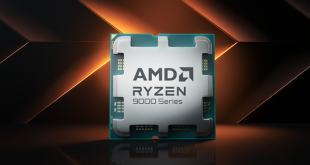AMD have announced that they will be focusing on ARM and x86 chips by 2014 and are improving their Opteron range. They have introduced new Opteron processors which are designed for use in cloud servers to process Web transactions.
The new Opteron 4300 and 3300 x86 server chips have up to eight core and are aiming to target entry level and mid range server systems.
Nine new processors have been announced and the suggestion is that they will be used in SeaMicro dense servers which use the older 4200 and 3200 chips. The new chips demand less power and have performance improvements over the older designs.
AMD are experiencing a decline in server business sales and the update is set to drive sales. They are also focusing on ARM based servers by 2014. The plans are to use both families of processor to address specific situations for a wide demand.
According to Mercury Research AMD had a 4.5 percent share of the x86 server processor market in Q3 this year, a drop from 5.2 percent in the same quarter a year before. Intel have the remaining market share, which is significantly larger. This is a far cry from the AMD peak server market share in 2006, when they claimed 24 percent.
Cloud servers are a huge demand right now and the new processors are important for AMD as they try to catch up with Intel. The new processors will go head to head against the Xeon X86 server processors for single and dual socket boards.
There are six new Opteron 4300 processors, which have between four and eight cores each, and demand between 35 and 65 watts of power. The chips are around 15 percent faster than the older Opteron 4200 designs, according to AMD benchmarks. They range between 2.2ghz and 3.1ghz and can turbo up to 3.8ghz under specific situations.
The new Piledriver architecture is behind the improvements, featuring more operations per cycle. Bulldozer proved unpopular with the media and popular and AMD have to move quick to address the concerns.
Kitguru says: This will be seen as a strong move for AMD but it will be hard to wrestle away market share from Intel.
 KitGuru KitGuru.net – Tech News | Hardware News | Hardware Reviews | IOS | Mobile | Gaming | Graphics Cards
KitGuru KitGuru.net – Tech News | Hardware News | Hardware Reviews | IOS | Mobile | Gaming | Graphics Cards



